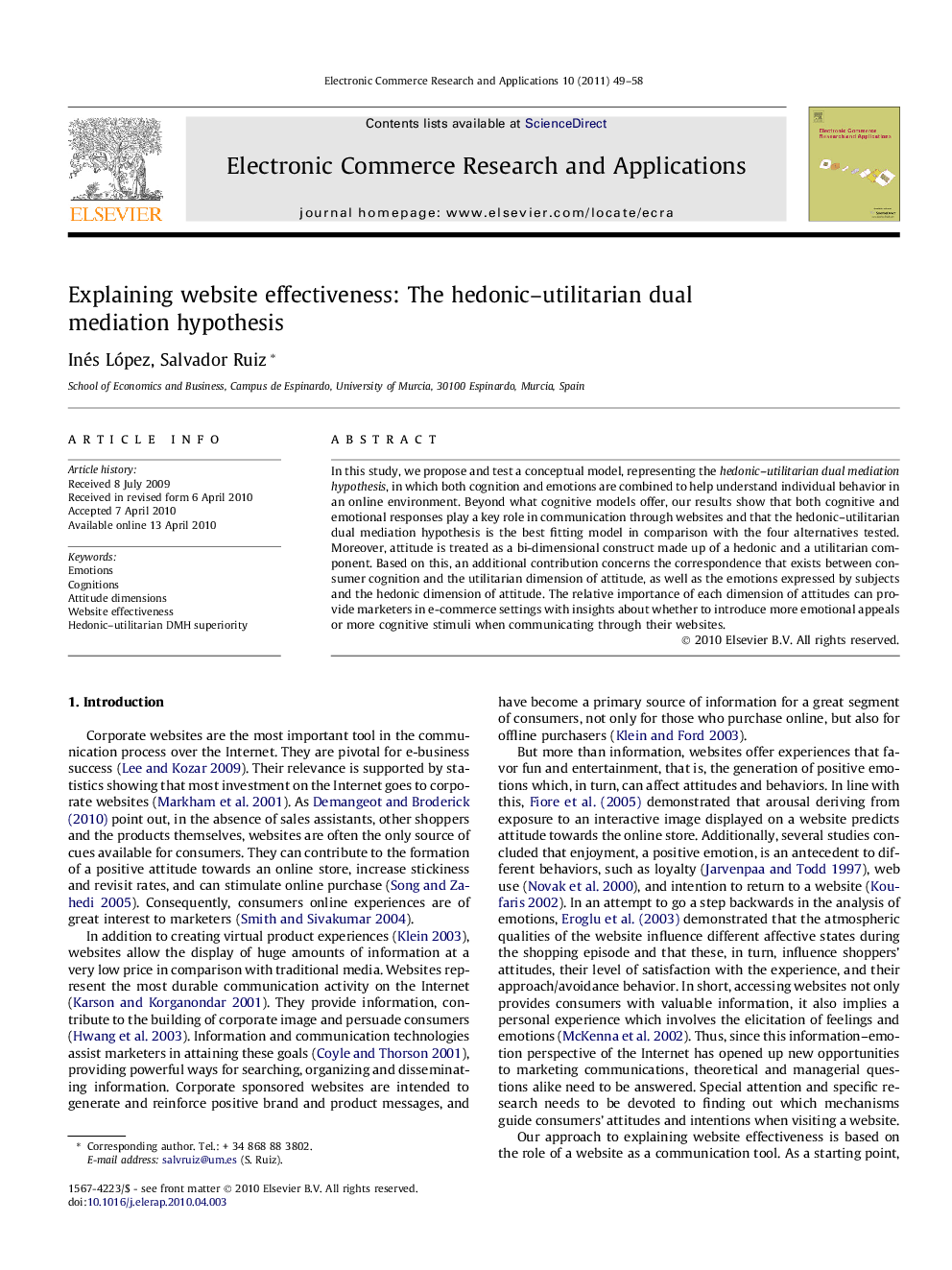| کد مقاله | کد نشریه | سال انتشار | مقاله انگلیسی | نسخه تمام متن |
|---|---|---|---|---|
| 379898 | 659517 | 2011 | 10 صفحه PDF | دانلود رایگان |

In this study, we propose and test a conceptual model, representing the hedonic–utilitarian dual mediation hypothesis, in which both cognition and emotions are combined to help understand individual behavior in an online environment. Beyond what cognitive models offer, our results show that both cognitive and emotional responses play a key role in communication through websites and that the hedonic–utilitarian dual mediation hypothesis is the best fitting model in comparison with the four alternatives tested. Moreover, attitude is treated as a bi-dimensional construct made up of a hedonic and a utilitarian component. Based on this, an additional contribution concerns the correspondence that exists between consumer cognition and the utilitarian dimension of attitude, as well as the emotions expressed by subjects and the hedonic dimension of attitude. The relative importance of each dimension of attitudes can provide marketers in e-commerce settings with insights about whether to introduce more emotional appeals or more cognitive stimuli when communicating through their websites.
Journal: Electronic Commerce Research and Applications - Volume 10, Issue 1, January–February 2011, Pages 49–58